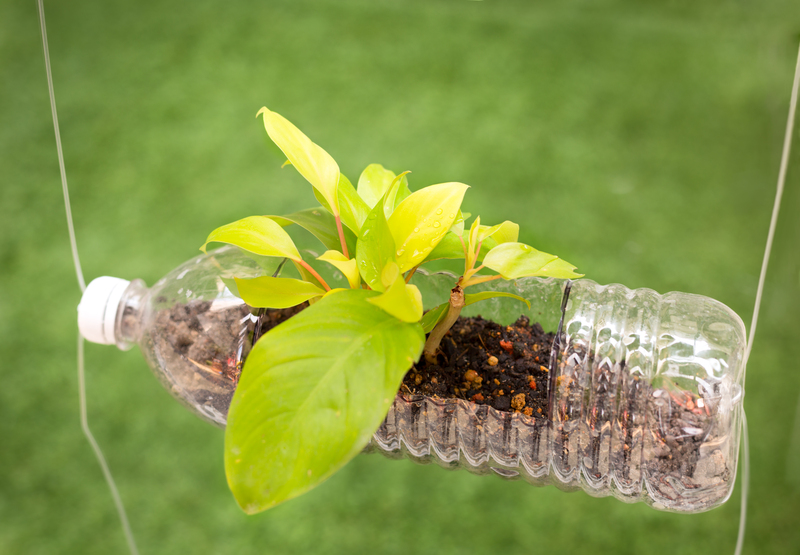Bulky Waste on a Budget: Practical Savings for Households
Dealing with bulky waste--those larger household items like furniture, appliances, mattresses, and garden debris--can be challenging, especially for families trying to save money. Efficient and cost-effective solutions are essential for responsibly managing these items while avoiding surprise fees from local councils or private services. In this comprehensive guide, we'll explore practical savings tips for handling bulky household waste on a budget, offering eco-friendly and wallet-friendly ideas for every home.

What Is Bulky Waste?
Bulky waste refers to items that are too large or heavy for normal household rubbish collection. These may include:
- Sofas and armchairs
- Beds, mattresses, and wardrobes
- Large kitchen appliances (e.g., fridges, ovens, washing machines)
- Garden waste (tree branches, old fencing)
- Rugs, carpets, and underlays
- Patio furniture and bikes
While essential to upgrade or replace, disposing of these items often poses both logistical and financial challenges for households. Professional collection services, landfill fees, and improper disposal can quickly eat into your family's budget.
Challenges with Bulky Waste Disposal
There are a few key difficulties families encounter when disposing of bulky items:
- Cost: Collection or drop-off fees can add up quickly.
- Environmental impact: Landfilling items has a harmful effect on the planet.
- Inconvenience: Transporting large objects requires time, effort, or renting transport.
- Legal restrictions: Some councils have regulations on what can be collected curbside.
So how can you dispose of bulky household items on a budget? Here's a comprehensive guide to saving money while managing large-scale waste responsibly.
1. Reuse and Repurpose Whenever Possible
Give Old Items New Life
One of the best ways to save money is to reuse or repurpose your bulky waste. Upcycling is gaining popularity as a sustainable, creative way to breathe new life into tired furniture or materials.
- Refinish or paint: Sand down and repaint old cabinets, tables, or chairs for a fresh look at minimal cost.
- Reupholster soft furnishings: New fabric can transform outdated sofas or dining chairs.
- DIY home projects: Disassemble old wardrobes or beds for wood, which can be used for shelves, planters, or garden features.
- Repurpose appliances: Old washing machine drums make excellent outdoor firepits or planters.
Pass It On
If you can't use it, perhaps someone else can. Consider these zero-cost alternatives to landfilling:
- List on freecycle groups (e.g., Freegle, Freecycle, Facebook Marketplace 'Free' section).
- Donate to charity shops that accept furniture or working appliances.
- Offer items to friends, neighbours, or community groups who may have use for them.
Not only does this reduce disposal costs, but it also supports the circular economy and prevents useful items from going to waste.
2. Plan Ahead--Bulk Waste Collection Services
Council Collection Schemes
Most councils offer bulky waste collection for a fee, but the cost and rules vary. Here's how to save:
- Check for free schemes: Some councils offer one free bulky item collection per year per household, or occasional amnesty days where large items are taken for free or at a significant discount.
- Group items together: Booking fewer visits by collecting all your bulky waste at once maximizes value and reduces per-item cost.
- Share with neighbours: Splitting the cost for a collection with nearby households saves everyone money.
- Consult eligibility and guidelines: Some councils exclude mattresses or certain appliances--be sure to verify before booking.
Private Collection Companies
If council services aren't available or convenient, consider reputable private services:
- Request quotes from multiple providers: Prices can differ widely--compare before booking.
- Ask about volume-based pricing: Some companies charge by van load rather than per item, saving you money if you have several things to dispose of.
- Verify waste licenses: Ensure the company is legally permitted to carry waste--illegal dumping can result in fines.
3. DIY Disposal--Save with Self-Transport
Transporting bulky waste yourself to the local recycling centre or household waste and recycling centre (HWRC) is typically the cheapest legal option.
- Understand what's accepted for free: Most local tips allow householders to dispose of furniture, white goods, and garden waste free of charge.
- Borrow or rent a vehicle: If you don't have access to a large-enough vehicle, consider borrowing from friends/family or hiring a van for a few hours.
- Disassemble items: Breaking down furniture into parts makes it easier to transport and may save on disposal charges (some sites charge by volume).
- Check for permit requirements: Some recycling centres require a permit for vans or trailers. Check in advance online to avoid disappointment or fees.
4. Avoid Hidden Fees and Fly-Tipping Fines
Improperly disposing of bulky household waste--such as fly-tipping in the countryside or small laybys--can result in significant fines and even criminal prosecution. To stay on-budget and legal:
- Always use registered waste carriers--ask for proof of certification.
- Keep disposal receipts--in case you need to prove responsible disposal.
- Never leave waste outside recycling centres: It's still classified as fly-tipping.
5. Try Community and Council Recycling Initiatives
Furniture Reuse Networks
Many towns have furniture reuse charities and social enterprises that will collect reusable furniture and working appliances free or for a small fee. Examples include:
- British Heart Foundation
- Emmaus
- Freecycle/Freegle
These organizations often refurbish and redistribute items to families in need, which not only helps your community but saves you money on disposal too!
Council "Bring Out Your Rubbish Days"
Some councils organize recurring "bring out your rubbish" days, where residents can leave major items outside for collection, often free of charge. Look out for flyers, local notices, or council website updates.
6. Reduce Future Bulky Waste
Choose Modular, Upgradable, or Multi-Use Purchases
Want to avoid future costs? Here's how to shop smart and reduce the risk of creating more bulky waste:
- Invest in quality, long-lasting furniture and appliances
- Choose modular, easily-repaired items that won't need full replacement if one part fails
- Opt for flat-pack or disassemblable designs, making movement and disposal easier
- Buy second-hand or upcycled goods--cheaper upfront and reduces landfill waste
*This future-proofs your household and minimizes recurring disposal costs.*
Rent or Share Items You Rarely Use
Instead of buying bulky items that are rarely used (e.g., event tables, guest beds, power tools), consider renting or sharing via local "library of things" projects or tool-lending schemes.
7. Save on Bulky Garden Waste
Composting and Chipping
Garden waste is one of the most common sources of bulky refuse. Reduce disposal costs by:
- Composting at home: Many councils offer discounted compost bins.
- Chipping branches: Rent a shredder with neighbours to produce mulch for your garden, saving on tip trips.
- Community composting schemes: Check if local allotments or garden societies accept green waste.

Bulky Waste on a Budget: Key Tips Roundup
- Reuse, repurpose, or donate wherever possible to avoid disposal costs.
- Plan ahead: Take advantage of local council services, amnesty or "bring out your rubbish" days, and group collections with neighbours.
- DIY disposal to recycling centres is often free (except for vehicle hire/fuel).
- Minimize hidden costs and stay legal: Always use licensed carriers and keep evidence of responsible disposal.
- Smart shopping reduces future waste: Buy upgradable, modular or second-hand bulky goods when possible.
- Garden waste can often be composted or chipped at home for free mulch.
Conclusion: Save Money and the Environment
Dealing with bulky household waste on a budget isn't just possible--it's an opportunity to save money, help your local community, and protect the environment. By making use of council and community schemes, rethinking what you buy, and getting creative with reuse and DIY solutions, you can cut the cost of disposing of large items to the minimum.
*Remember, responsible bulky waste management is about planning, awareness, and choosing the most cost-effective and sustainable option available. Every item you reuse, repurpose, or divert from landfill not only saves your budget, but also helps build a greener, cleaner neighbourhood for everyone.*
Start today--your wallet, your home, and the planet will thank you!
